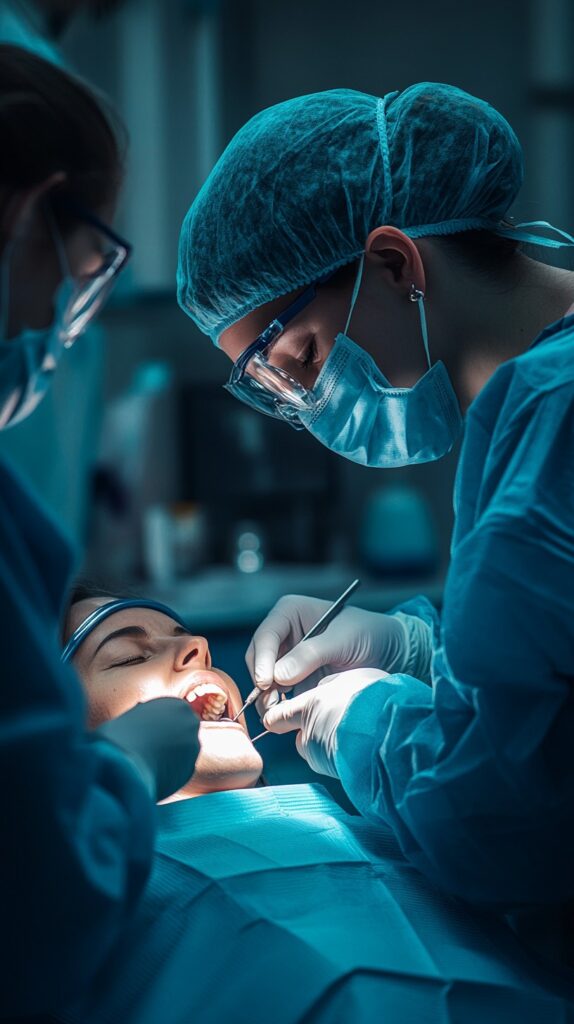Oral and Maxillofacial Surgery is a branch and specialty of dentistry concerned with the diagnosis, surgical treatment, and adjunctive care of disorders, diseases, injuries, and defects involving the functional and aesthetic aspects of the hard and soft tissues of the oral and maxillofacial regions and related structures.
Oral and Maxillofacial Surgeons are dental specialists who have successfully completed an accredited advanced education program in oral and maxillofacial surgery and currently hold a specialty designation.

Key Areas in Oral and Maxillofacial Surgery
- Oral Diseases and Disorders: This includes a variety of conditions such as infections, tumors, and other disorders affecting the soft or hard tissues in the mouth.
- Jaw Surgery: This can involve procedures to correct problems with the upper or lower jaw, including malocclusion (misaligned teeth) and underdeveloped jaws.
- Facial Trauma: This involves treating injuries to facial structures resulting from accidents or other trauma. Procedures may include the repair of broken bones or tissue reconstruction.
- Congenital Abnormalities: Includes conditions such as cleft lip and palate, which require surgical intervention to correct structure and function.
- Dental Implants: Surgery to place dental implants as replacements for missing teeth. This often involves the placement and restoration of jawbone to ensure proper integration of the implant.
- Oral Cancer Treatment: Includes the diagnosis and treatment of malignant tumors in the mouth, including surgery to remove cancerous tissues and post-operative reconstruction.
Common Procedures in Oral and Maxillofacial Surgery
- Excision of Cysts or Tumors: Removing cysts or tumors from the mouth, jaw, or face.
- Osteotomy: A surgical procedure to cut and reshape the jawbone.
- Jaw Fracture Repair: Managing fractures of the upper or lower jaw.
- Facial Reconstruction: Repairing facial structures damaged due to trauma or tumors.
Education and Training
Oral and maxillofacial surgeons typically require advanced training after graduating from dental school. They must complete a specialization program that includes extensive clinical and practical education. Many also undergo additional training in general surgery or plastic surgery to enhance their skills.
